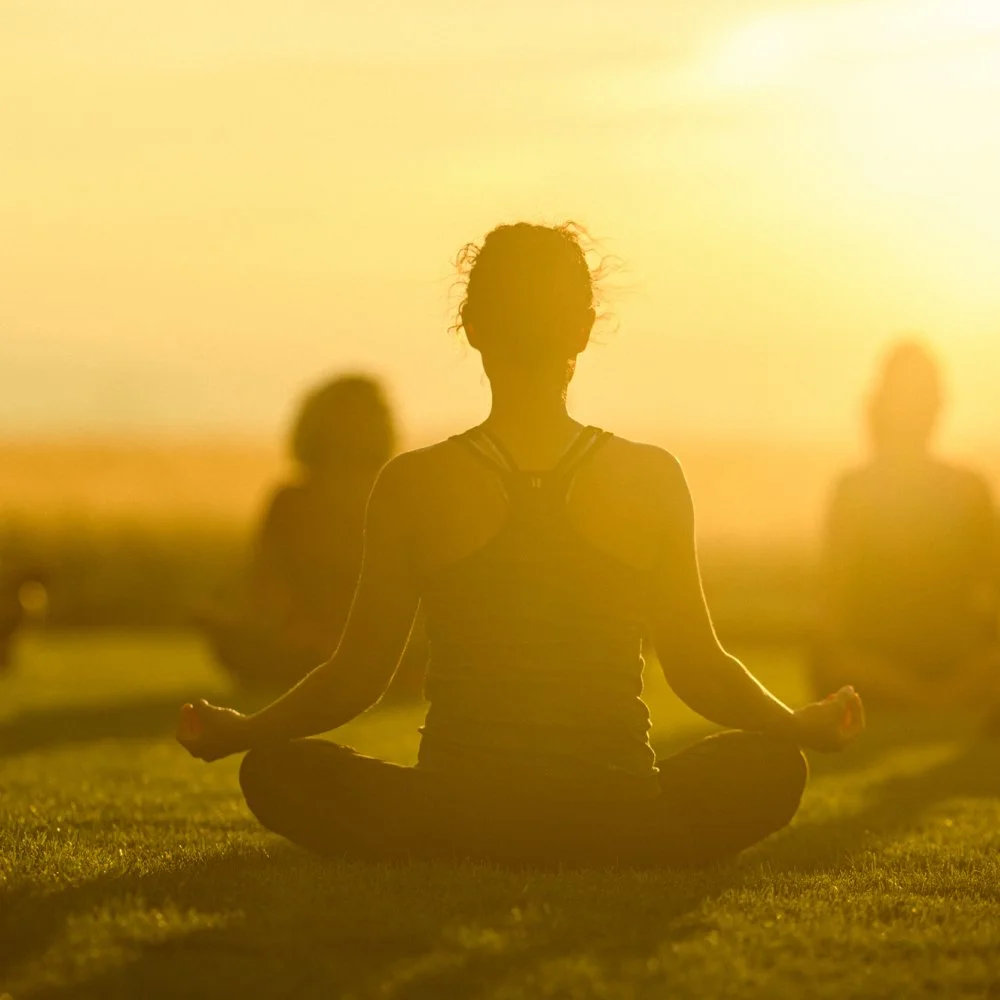Integration of Breathing Techniques in Bath Meditation to Enhance Focus

Exploring the Intersection of Breath and Bath for Mindfulness
In our increasingly hectic lives, moments of solitude often feel like a luxury. Yet, the age-old practice of meditation provides essential tools to help restore balance and clarity in our mental state. One particularly effective method is the integration of breathing techniques into bath meditation, which not only offers a tranquil escape but also enhances mental focus.
Breathing techniques play a crucial role in shaping our emotional and psychological well-being. Here are some insightful aspects of how they contribute to effective meditation:
- Calming the Mind: By engaging in deep, intentional breathing, individuals can significantly reduce anxiety levels and promote relaxation. This is particularly important in Nigeria, where the daily hustle can lead to overwhelming stress.
- Centering Awareness: Focused breathing helps sharpen concentration, enabling individuals to maintain their attention during meditative practices. For instance, the rhythmic inhalation and exhalation can serve as an anchor to prevent the mind from wandering.
- Fostering Mind-Body Connection: Synchronizing breath with physical sensations promotes a deeper understanding and appreciation of the body’s cues. This practice can be particularly enlightening for those who often overlook their mental and physical health needs.
In Nigeria, traditional practices place a strong emphasis on the importance of breath. Many local customs involve breathing exercises or rituals that embody mindfulness. These practices not only enhance physical vitality but also support mental clarity. By combining these traditional techniques with contemporary breathing exercises, individuals can elevate their meditation experience in a bath sanctuary. Imagine the soothing warmth of water enveloping you as you practice deep diaphragmatic breathing, enabling a profound sense of relaxation and rejuvenation.
This unique combination of water therapy and breathing not only enhances mental focus but also supports overall well-being. As you embark on this journey into self-discovery, consider delving deeper into specific breathing techniques that resonate most with you. Techniques such as Box Breathing, where you inhale for four counts, hold for four, exhale for four, and hold again for four, can be particularly effective. This structured approach allows individuals to visualize their breath, further enhancing mindfulness.
Transform your bathing routine into a sacred practice that promotes not only physical cleansing but also mental rejuvenation. As you immerse yourself in warm water, allow each breath to guide you toward a new level of mindfulness, unlocking restorative experiences that linger long after you step out of the tub. The fusion of ancient wisdom with contemporary practices can illuminate the path toward a more centered and peaceful existence.
YOU MAY ALSO LIKE: Read read another article
The Science Behind Breathing and Focus
When we contemplate the integration of breathing techniques in bath meditation, it is essential to understand the physiological and psychological mechanisms at play. Research reveals that our breathing patterns can significantly influence our cognitive processes and emotional responses. In the context of meditation, the act of regulating breath becomes a powerful tool for enhancing focus and cultivating mindfulness.
One of the key benefits of focused breathing is its ability to activate the parasympathetic nervous system, often referred to as the “rest and digest” system. This activation allows the body to transition into a state of calmness, which is vital for effective meditation. As you settle into a warm bath, consider how every inhalation fills your lungs with revitalizing energy, while each exhalation releases tension accumulated throughout the day. This cyclical process not only invites relaxation but also creates an environment conducive to deeper concentration.
Among various breathing techniques, several stand out due to their simplicity and effectiveness when paired with the serene experience of bathtime meditation. Here are a few techniques that can serve as a guide:
- Diaphragmatic Breathing: Also known as abdominal breathing, this technique involves inhaling deeply through the nose, allowing the diaphragm to expand. As the abdomen rises, engage in the practice of exhaling slowly through the mouth. This not only enhances lung capacity but also promotes a sense of calm.
- Nasal Alternate Breathing: This ancient technique is rooted in yogic practices and encourages the flow of energy within the body. By alternating breaths between the left and right nostrils, practitioners report heightened focus and a balanced mental state, making it ideal for those seeking clarity in their meditative journey.
- 4-7-8 Breathing: A relatively simple routine, inhale for four counts, hold for seven, and exhale for eight. This technique allows for deep relaxation while simultaneously sharpening focus, making it a robust addition to your bath meditation.
Through the lens of culture, the relevance of breathing techniques is further emphasized in Nigeria, where community-driven practices often incorporate elements of mindfulness. Traditional healers and wisdom keepers advocate for exercises that heighten awareness of breath as a means of restoring balance and vitality. Infusing these traditional perspectives with modern practices fosters a holistic experience that honors both the past and the present.
As you navigate your personal journey of integrating breathing techniques into bath meditation, consider the profound impact this practice can have on your focus and overall mental clarity. By immersing yourself in warm water and engaging in specific breathing methods, you open the door to a world where serenity enhances productivity, and mindfulness becomes a part of your daily routine.
| Advantages | Details |
|---|---|
| Enhanced Concentration | Breathing techniques, integrated into bath meditation, facilitate a deep state of relaxation, allowing practitioners to hone their focus effectively. |
| Stress Reduction | The combination of warm water and structured breathing reduces cortisol levels, leading to a more serene mind, which is essential for improved mental clarity. |
| Improved Mindfulness | Bath meditation, complemented with breathing exercises, enhances mindfulness, empowering individuals to stay present during their practice. |
| Physical Relaxation | Breath control reduces muscle tension, promoting overall body relaxation that enables a deeper meditation experience. |
Integrating breathing techniques into bath meditation not only enhances focus but also contributes to an overall sense of well-being. The ritual of bathing, coupled with intentional breathing, creates a unique environment that is conducive to mental clarity and stress relief. Additionally, practitioners often report an increase in their ability to manage stressors in daily life. The atmosphere of a warm bath, combined with the power of focused breath, becomes a sanctuary away from the frenetic pace of the outside world. This synergy encourages deeper introspection and a connection to inner thoughts, making it a transformative process worth exploring further.
LEARN MORE: This related article may interest you
Cultivating Mindfulness Through Breathing in Water
The integration of breathing techniques into bath meditation not only enhances focus but also deepens the overall meditative experience. When immersed in warm water, the senses become amplified; the gentle sounds of the water, the captivating scents of bath oils, and the soothing warmth enveloping the body set the stage for mindfulness. This environment serves as a natural catalyst for employing focused breathing techniques that foster a greater awareness of the present moment.
Maintaining focus during meditation can sometimes be a challenge, particularly in bustling environments typical of many Nigerian cities. Here, the practice of mindful breathing emerges as a beacon of tranquility. One effective method is to employ the Sankalpa Technique, a practice that combines intention-setting with focused breathing. While in your bath, set a clear intention that resonates with your current state of mind—whether it’s serenity, clarity, or purpose. Each inhale solidifies this intention, while each exhale releases any distractions. Over time, this practice cultivates a profound connection between body and mind, ultimately sharpening one’s ability to focus.
Another compelling aspect of breathing techniques is their accessibility. Many Nigerians have already incorporated breath awareness into everyday life through traditional practices such as Olatunji ceremonies, where rhythmic breathing and chanting enhance spiritual focus. This cultural knowledge beautifully aligns with modern meditation practices, as individuals can merge familiar methods with new techniques. By using the calming atmosphere of a bath combined with breathing techniques, practitioners can create a personalized ritual that elevates mental clarity and emotional stability.
Moreover, science supports the claims about the benefits of integrating breathing techniques with meditation. Studies indicate that those who engage in conscious breathing demonstrate decreased levels of cortisol—the stress hormone—throughout their bodies. Lower stress levels lead to improved cognitive function, creating an ideal condition for maintaining mental concentration. This is especially vital for Nigerians managing the dual pressures of work and familial obligations, as a simple bath meditation routine can combat the buildup of daily stressors.
Breathing techniques also provide tangible methods for individuals seeking to enhance their focus on particular tasks outside their meditation. For instance, if you need to prepare for an important meeting or an exam, consider conducting a short bath meditation session beforehand. This practice not only initiates relaxation but primes the brain for intense periods of focus and concentration, adapting the power of mindful breathing to suit any scenario.
Furthermore, the development of technology has created new opportunities to fuse traditional practices with innovative techniques. Mobile applications like Calm and Headspace now offer guided bath meditations that incorporate breathing exercises. These resources can enhance the accessibility of focused breathing techniques for those who might find traditional methods difficult to grasp. The fusion of technology and ancient practices truly embodies the evolving landscape of mindfulness in Nigeria and beyond.
By continuing to explore and embrace the integration of breathing techniques within bath meditation, individuals can unlock their potential for enhanced focus, emotional regulation, and overall well-being. Each session offers a chance to connect deeply with oneself and master the art of being present, even in a fast-paced world.
RECOMMENDED: Check out this similar article
Unlocking Potential: The Transformative Power of Bath Meditation
In conclusion, the integration of breathing techniques into bath meditation creates a harmonious blend of relaxation and focus that is particularly beneficial in the fast-paced life of Nigeria. Through the mindful breathing practices discussed, individuals can transform their bathing routines into sacred rituals that enhance emotional stability, improve cognitive function, and cultivate an overall heightened awareness. The serene environment of warm water, combined with intentional breathing, acts as a refuge from external distractions and a gateway to self-discovery.
As the findings from various studies suggest, consciously focused breathing not only mitigates stress levels but also nourishes mental clarity, making it perfect for those looking to improve concentration. This is particularly relevant for Nigerians balancing work commitments with family responsibilities, as a simple bath meditation practice can offer relief from the mounting pressures of everyday life. Moreover, the accessibility of these techniques, especially when combined with technological advancements such as guided apps, democratizes mindfulness, allowing anyone to partake in this enriching experience.
Ultimately, by embracing the power of breath awareness within the soothing context of bath meditation, individuals can unlock their potential for improved focus, emotional resilience, and spiritual growth. Whether you are familiar with traditional practices or new to meditation, integrating these techniques offers a pathway not only to personal tranquility but also to greater engagement in our daily lives. It is time to immerse oneself fully in the art of being present, and in doing so, elevate our overall well-being amidst the hustle and bustle of life.



